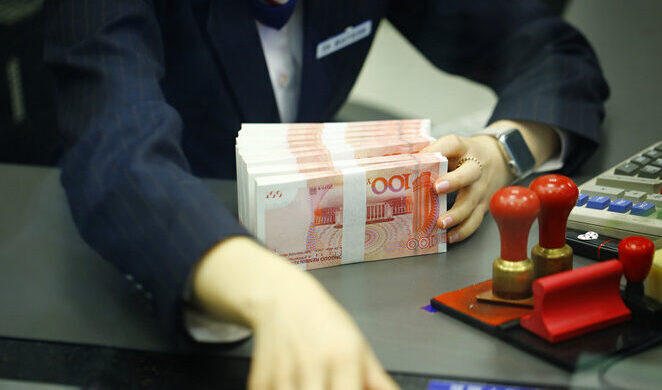Chinese Finance Minister Lan Fo’an discussed more proactive fiscal policies at the China Development Forum held on Sunday, saying that established policies should be implemented “the sooner, the better” to enhances the sense of benefit for all.
In 2025, China is implementing a “more proactive” fiscal policy for the first time, marking an upgrade from previous “proactive” policies, he said.
Lan highlighted that economic and social development objectives are being treated as an integrated whole, with a stronger counter-cyclical approach; the deficit ratio has been raised to 4%, expenditure structures are being optimized, and policy tools such as government bonds, fiscal subsidies, and special funds will be used in a coordinated manner to enhance policy synergy and ensure a unified direction.
Lan outlined the key principles guiding fiscal policy design and implementation: a systematic approach to balancing multiple objectives, innovative policies that improve coordination across different measures, precise initiatives targeting economic priorities at the local level, and careful timing to ensure policies are forward-looking and effective.
“In areas where certainty is achievable, we should allocate resources in full at once,” Lan said. “In terms of timing, we must take proactive action, accelerate fiscal spending, expedite bond issuance and utilization, and ensure swift materialization of expenditures. Regarding the pace, planning should be done in one go, implementation should be phased, and efforts should be sustained. As for policy preparation, we need to stay ahead, keeping a well-stocked policy toolbox ready.”
The more proactive fiscal policy will target weak points in high-quality development and address bottlenecks in economic circulation, with an emphasis on boosting consumption, expanding investment, fostering new productive forces, advancing a higher level of openness, and mitigating key risks, he said.
To stimulate consumption, the government will inject 300 billion yuan from ultra-long-term special bonds into programs such as consumer goods trade-in incentives, directly lowering costs for buyers, measures like higher pensions and childcare subsidies will enhance purchasing power, while financial policies will provide interest subsidies for personal consumption loans and related business loans, Lan said.
On investment, both physical and human capital will be prioritized to meet high-quality development needs. Government investments will be substantial this year, the continued issuance of ultra-longspecial bonds will support major infrastructure, equipment renewal and consumer goods trade-in projects, 4.4 trillion yuan in new local government special bonds will be issued, with new mechanisms granting local governments greater autonomy, and efforts will also be made to mobilize private investment and unlock broader social capital, Lan said.
In fostering new productive forces, central fiscal support for education, technology, and talent development will be strengthened to drive deeper integration between technological and industrial innovation. R&D funding will increase, and tax incentives, government procurement policies, and investment funds will be leveraged to boost artificial intelligence applications, nurture emerging industries, and upgrade traditional sectors, he said.
For higher-level openness, China will maintain a strategy of mutually beneficial cooperation, expand its network of high-standard free trade zones, strengthen collaboration with international financial institutions like the World Bank and Asian Development Bank, and support the stable operations of the Asian Infrastructure Investment Bank and the New Development Bank.
Managing financial risks remains a top priority. The government will push forward with swapping local hidden debt in a targeted manner to ensure early impact. Additionally, policies will be refined to accelerate the market-based transformation of local financing platforms and prevent further accumulation of hidden debt.
In the financial sector, special treasury bonds will be issued to recapitalize major state-owned commercial banks, enhancing their ability to support the real economy. The 2025 Government Work Report has proposed issuing 500 billion yuan in special treasury bonds to strengthen these banks’ capital bases, which is a forward-looking initiative aimed at improving capital management mechanisms and reinforcing lending capacity, Lan said.
In the real estate market, fiscal policies—including local government special bonds, special funds, and tax incentives—will be fine-tuned to support stabilization and recovery.

